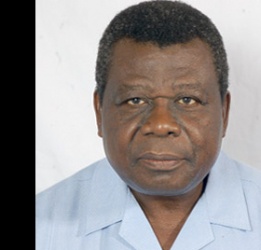
Mr Emmanuel Asiedu Mante, a former Deputy Governor of the Bank of Ghana, has expressed concern about the negative effects of the current energy crises on the economy and said the crisis must be resolved.
He said the situation had the potential of weakening the country’s economic prospects if not urgently addressed.
According to him, all sectors of the economy were whirling under the pressure of the energy crisis such as households hurting and businesses crumbling, jeopardising growth in industry and all sectors of the country.
Mr Asiedu Mante, who was addressing participants at the maiden public forum organized by the Chartered Institute of Bankers (Ghana) held in Accra, said the short term solutions to ending the energy crisis were far from clear even though Ghana had observed some momentum in seeking for solutions to improve the generation mix over the medium to long term.
The forum brought together economic think tanks, government officials, business executives and policy makers to discuss topical issues that face the nation in pursuit of improving the economy and enhancing the quality of life of citizens.
It was on the theme: “Monetary Policy Stance and the National Budget-Implications for Businesses in 2015” and was informed by the economic performance that Ghana had recorded over the past years and its impact on industrial growth and development.
Mr Asiedu Mante said the slowdown in the pace of economic activity anticipated by the 2015 Budget Statement in the face of the energy crises and the coordinated tight fiscal and monetary policies implied that there would be a sluggish aggregate demand which could affect business turnover, profitability and investments.
He said a tight monetary policy stance, consistent with deep fiscal consolidation was envisioned by the 2015 Budget, with the aim of re-anchoring inflation expectations which had heightened on the back of the pass through effects of fuel adjustments, exchange rate depreciation and fiscal pressures.
He said efforts of the Bank to maintain a tight policy to achieve the inflation target would be fully complemented by strong and effective fiscal consolidation in the outlook, which meant that government’s public sector borrowing requirements could be lower in 2015.
“If this occurs, money market rates should begin to trend downwards and influence other interest rates including lending rates. This in turn could crowd in businesses in their search for cheaper credit to expand their businesses,” he said.
Mr Asiedu Mante said he was confident that if the signals of disinflation that were emerging materialised and “takes hold", the Central Bank would consider cutting its policy rate to prop real sector activities.
He however said although businesses could expect a calmer macroeconomic environment in 2015, the stance of monetary policy notwithstanding the business environment would be more defined by the immediate threats posed by the energy crisis on the economic performance in 2015.
Mr Kwaku Ricketts Hagan, the Deputy Minister of Trade and Industry, blamed previous leaders for the lack of structural planning which has resulted in the current energy crisis, and called for strong public/private engagements in planning the affairs of the country.
He said Ghana was not broke, and does not always has to rely on the International Monetary Fund (IMF) for a bail out, since more than one billion dollars was needed to transform the country.
Mr called for strict discipline in the expenditure by all sectors to prevent overspending of budgets and also help to address the economic instabilities.